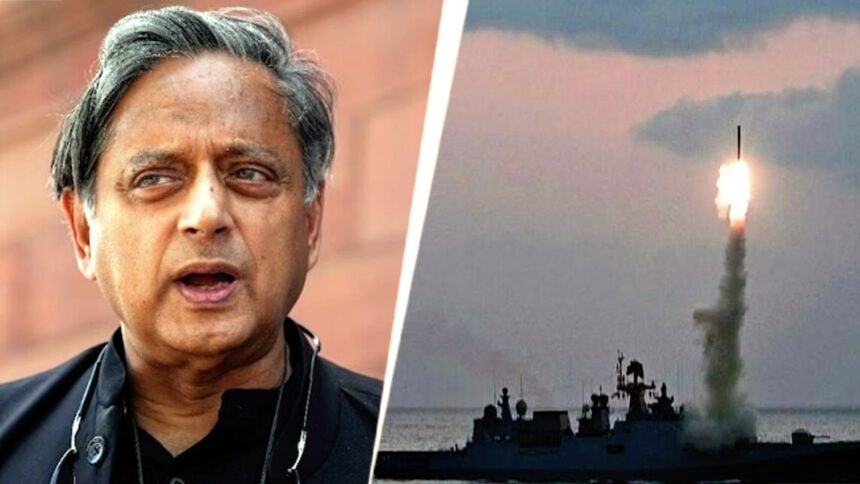Congress MP Shashi Tharoor has called for a “multi-dimensional strategy” to retaliate against the Pahalgam terror attack, including kinetic military strikes, global diplomatic pressure, and covert operations targeting Pakistan’s military and terrorist infrastructure.
In an opinion piece in The Indian Express, Tharoor outlined the objectives he believes motivated the massacre that killed 26 civilians, mostly tourists, and said India’s response must deliver “a lesson they will never forget”.
“As befits a democracy, India is engulfed in a debate about the suitable response to the outrage at Pahalgam last week, which took 26 innocent lives,” Tharoor wrote. “Many, including this author, have echoed the Prime Minister’s vow of strong retribution that will teach the perpetrators and their handlers in Pakistan a lesson they will never forget.”
He questioned what the terrorists hoped to achieve. “The objectives of the attack are clear: Stop peace and ‘normalisation’ in Kashmir. Destroy tourism. Wreck the Kashmir economy to increase discontent there. Add to mistrust of Kashmiris among other Indians. Increase communal polarisation within India. Distract India from pursuing its economic growth; derail the ‘India story’. Internationalise Kashmir. Re-hyphenate India and Pakistan in the global imagination.”
‘India-Pakistan Tensions Won’t Be Limited to Diplomatic Tensions, Something More Kinetic Will Happen’ – @ShashiTharoor Speaks Exclusively to RT
‘It is not possible now to keep on permitting this same script we’ve played over and over again.
We have seen this now 15, 16 times… pic.twitter.com/5VFb1kPlav
Tharoor blamed the Pakistani military for orchestrating the attack. “Only one set of people gains from all of these — the military forces in Pakistan, desperately looking for a diversion from their own unpopularity and the frustrations of a stagnant economy,” he wrote. Referring to Pakistan Army Chief General Asim Munir’s speech, Tharoor said it was a prelude to the violence and reflected a “bigoted view of the impossibility of good relations between Hindus and Muslims.”
On India’s security lapses, Tharoor noted, “There were intelligence and security failures on our side, no doubt…Lessons must be learned and accountability established, in the government’s own interest. But the time for that is when the crisis is over, not now — when we all need to be united in our resolve to stand up to terrorism.”
On the diplomatic front, Tharoor argued for global mobilisation. “New Delhi must rally global support to pressure Pakistan’s military establishment… India must also advocate the extradition of wanted Pakistani terrorists, a fresh listing in the UNSC sanctions committee, and renewed FATF strictures on Islamabad.”
But he stressed that diplomatic action alone is insufficient. “Something more kinetic is needed to send a clear message to Rawalpindi that there will be a price to pay for terror,” he wrote. He proposed surgical strikes across the Line of Control, larger-scale airstrikes than Balakot, and even missile attacks on terror camps.
He added, “India’s military response could expand to include the Navy…Operating in international waters, the Navy could exert pressure on Pakistani merchant shipping.” He also advocated enhanced covert operations and the use of cyber warfare to cripple terrorist communications and infrastructure.
As for Pakistan’s response, Tharoor wrote, “Islamabad is unlikely to push for a full-scale war…It may aim for a limited conventional conflict, hoping to attract international mediation and rekindle global attention on the Kashmir issue.”
“In short,” Tharoor concluded, “India’s must be a multi-dimensional strategy, calibrated and calculated, combining measured aggression that delivers consequences for terror with methods that prevent uncontrollable escalation…India’s moves must leave little doubt about its resolve, while ensuring that these actions do not ignite major hostilities at the expense of the India growth story, which remains our overriding priority.”
“Let us never surrender to the murderers.”








